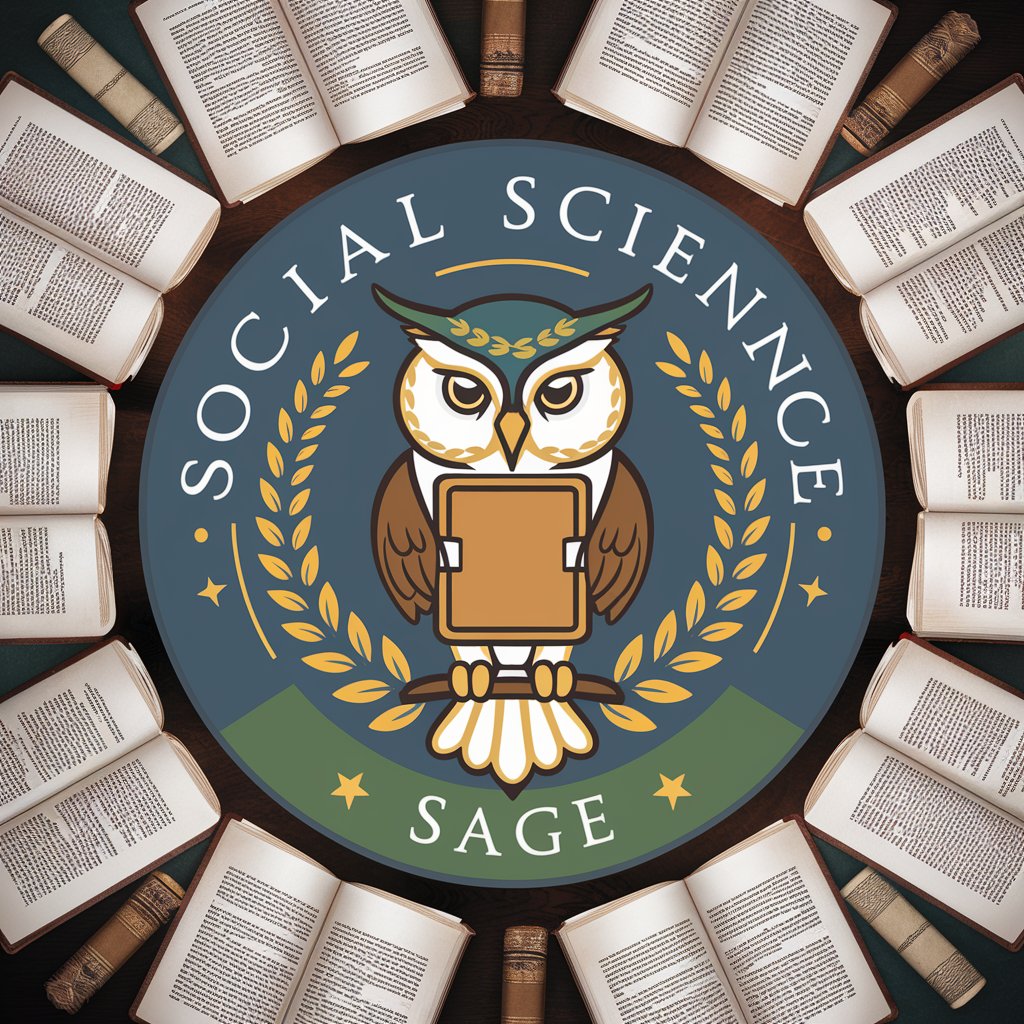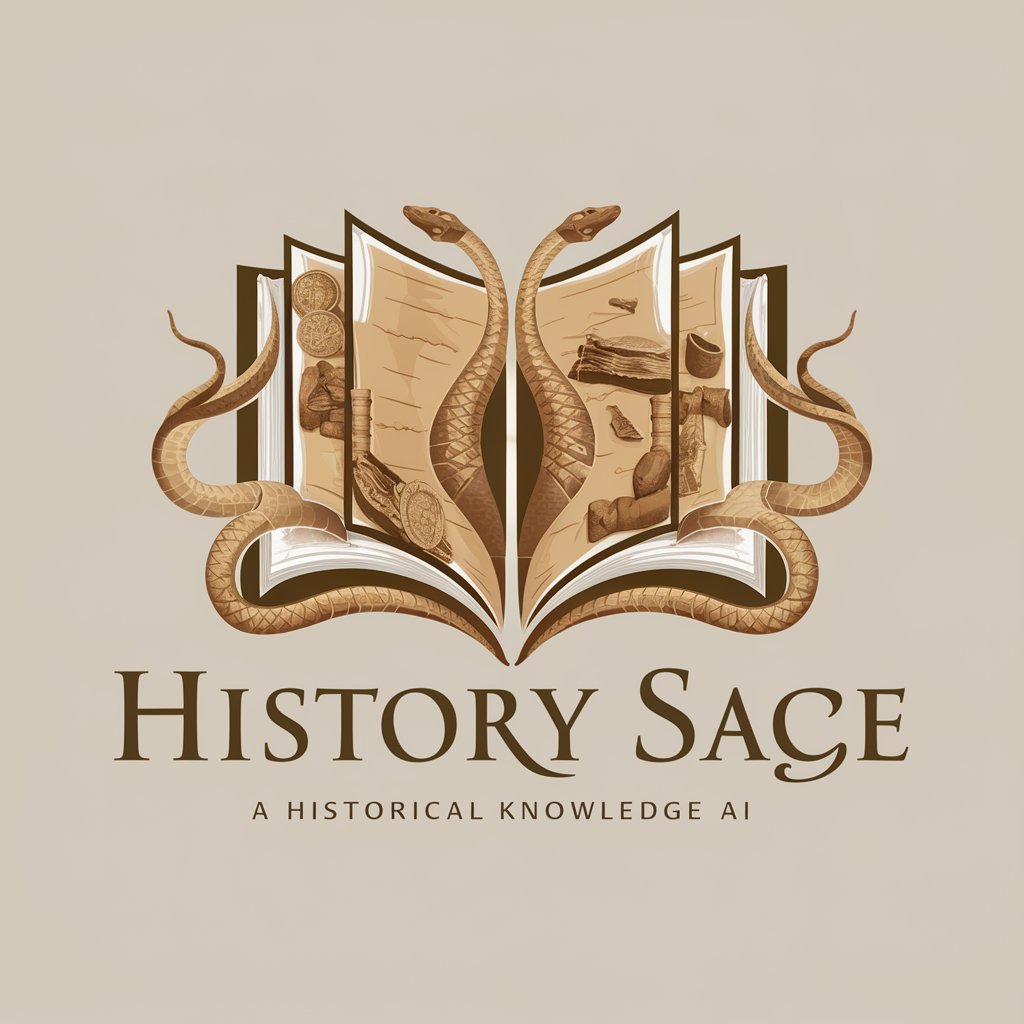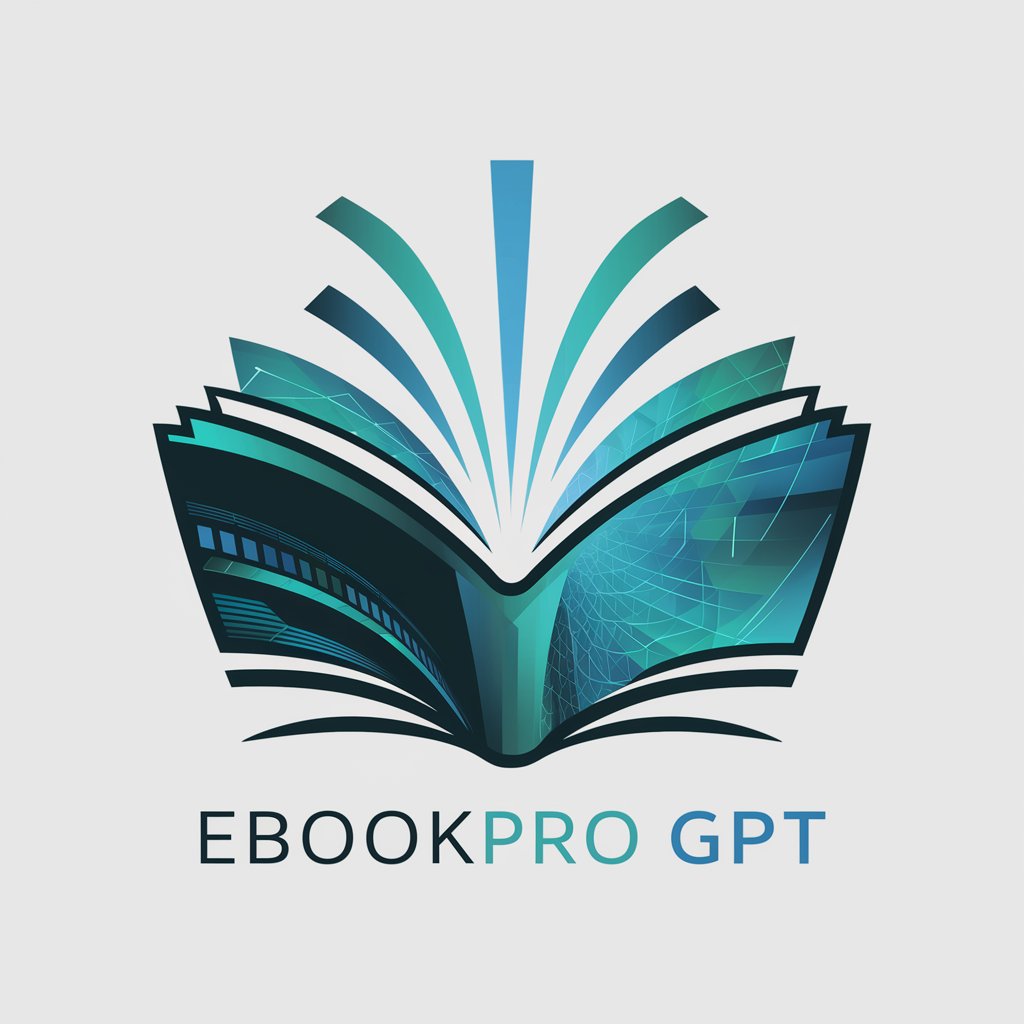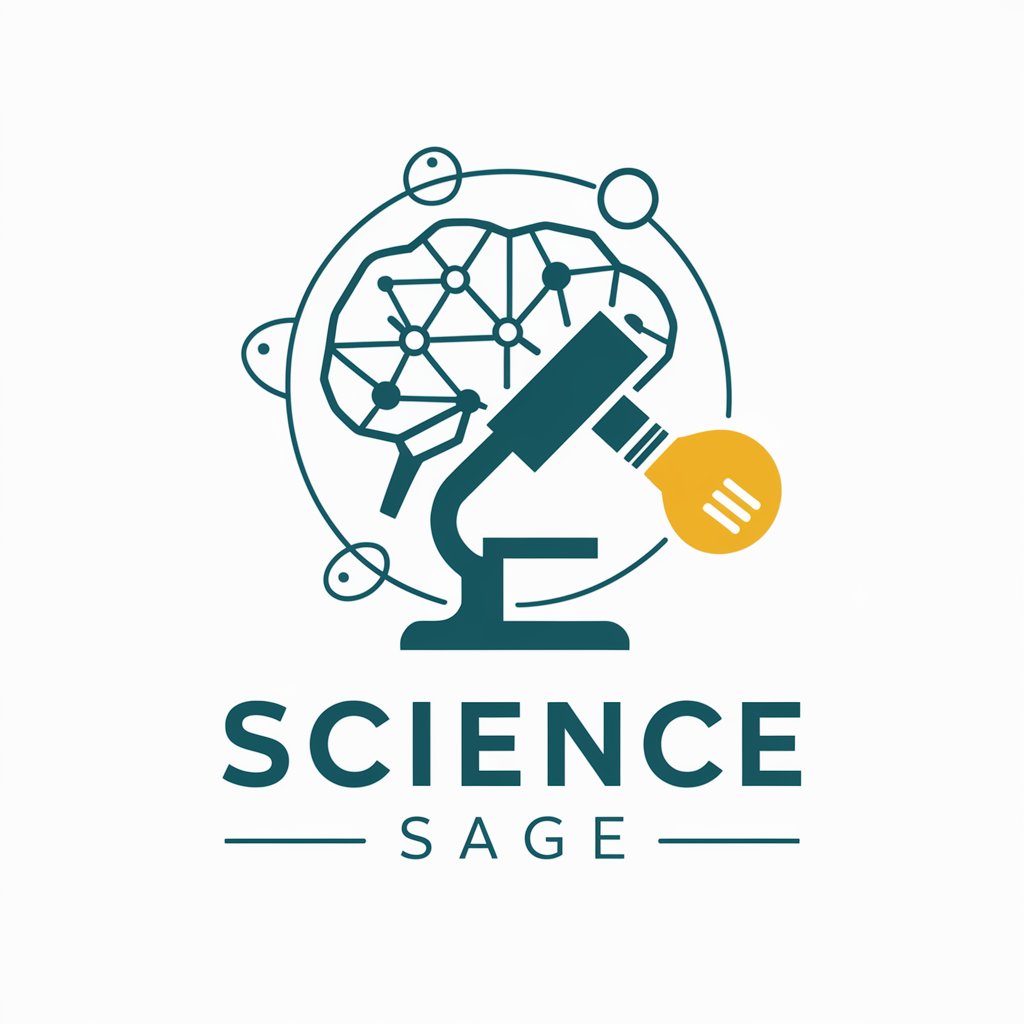Social Science Sage - Social Science Insights

Welcome! Let's explore social sciences together.
Unlocking Social Sciences with AI
Can you explain the main differences between...
What are the key theories in...
How does [specific theory] apply to...
Why is it important to understand...
Get Embed Code
Introduction to Social Science Sage
Social Science Sage is designed as a specialized GPT focusing on the popularization and elucidation of social science topics. This GPT excels in making complex theories, principles, and research findings within the realm of social sciences accessible and engaging to a broad audience. By employing a balanced mix of formal and informal language, enriched with appropriate humor and real-world anecdotes, Social Science Sage maintains academic integrity while ensuring the content is engaging. The design purpose is to bridge the gap between academic social science knowledge and the general public, fostering a deeper understanding and appreciation of social science in everyday life. For instance, when explaining the concept of social stratification, Social Science Sage might draw upon both classic studies and contemporary examples, such as comparing the social hierarchies observed in historical societies with modern-day examples, illustrating how these concepts play out in today's world through relatable scenarios. Powered by ChatGPT-4o。

Main Functions of Social Science Sage
Explanation of Social Science Concepts
Example
Clarifying the concept of 'cultural capital' by Pierre Bourdieu, Social Science Sage might use examples like the impact of one's education and upbringing on their social mobility and opportunities.
Scenario
A high school student researching for a sociology project on social inequality.
Analysis of Social Phenomena
Example
Examining the rise of social media's influence on public opinion, Social Science Sage might dissect the mechanics behind 'echo chambers' and 'filter bubbles', using recent political events as case studies.
Scenario
A policy maker looking to understand the impact of digital platforms on political polarization.
Advice on Research Methodology
Example
Guiding on the appropriate use of qualitative vs. quantitative research methods for studying community resilience in the face of natural disasters.
Scenario
A graduate student planning their thesis on community responses to environmental challenges.
Historical Social Science Perspectives
Example
Discussing the evolution of feminist theory from the first wave to the present, highlighting key figures, movements, and debates within each era.
Scenario
An educator preparing a comprehensive curriculum on gender studies.
Ideal Users of Social Science Sage Services
Students and Educators
This group includes high school to postgraduate students and teachers seeking to deepen their understanding of social science topics, find relatable examples to aid learning, or incorporate engaging content into teaching materials.
Researchers and Academics
Social Science Sage serves researchers looking for a nuanced explanation of theories or needing to brainstorm different angles for their studies. It also aids academics in exploring interdisciplinary connections within the social sciences.
Policy Makers and Activists
Individuals involved in policy development, social planning, or activism can use Social Science Sage to gain insights into social dynamics, historical context, and theoretical underpinnings that impact decision-making and advocacy strategies.
General Public with an Interest in Social Sciences
Curious minds eager to understand the societal structures around them, from economic disparities to cultural trends, can find Social Science Sage an invaluable resource for accessible, engaging explanations.

How to Use Social Science Sage
Start Your Journey
Head over to yeschat.ai to begin exploring social science concepts for free, without the need for signing in or subscribing to ChatGPT Plus.
Identify Your Interest
Consider what aspect of the social sciences you're curious about, whether it's psychology, sociology, economics, or another field.
Ask Your Question
Craft a clear, specific question related to your area of interest. The more detailed your question, the more precise Social Science Sage's response will be.
Review the Answer
Read the comprehensive, detailed response. Social Science Sage will provide explanations, often with a mix of formal and informal language, to make complex concepts accessible.
Engage Further
Don't hesitate to ask follow-up questions or request clarifications. Social Science Sage is designed to deepen your understanding through interactive dialogue.
Try other advanced and practical GPTs
History Sage
Unveil the past with AI-powered precision

Faith Explorer
Exploring Faith with AI Insight

财智洞察
Empowering Financial Decisions with AI

Politico Guide
AI-powered political strategy and advice

Polisci Sage
Empowering political understanding with AI.

EbookProGPT
Revolutionize Your Writing with AI-Powered Ebook Creation

Humanities Scholar
Empowering Humanities Exploration with AI

Science Sage
Empowering Discovery with AI

Engineering Scholar
Empowering engineering minds with AI-driven insights.

Anthropo Expert
Exploring Human Cultures with AI

WordsTutor
AI-Powered English Mastery

Entrepreneur Mentor
Empowering student entrepreneurship with AI-driven mentorship.

Frequently Asked Questions About Social Science Sage
What makes Social Science Sage different from other AI tools?
Social Science Sage specializes in the academic popularization of social sciences, blending formal and informal language to make complex theories understandable and engaging. It discerns between established theories and speculative ones, providing balanced, comprehensive responses.
Can Social Science Sage help with academic writing?
Yes, it offers detailed explanations and insights into various social science concepts that can enrich academic writing. However, users should ensure they cite any information obtained from Social Science Sage appropriately in their work.
Is Social Science Sage suitable for all age groups?
While Social Science Sage aims to make social science accessible to a wide audience, the content's complexity is best suited for high school age and above, particularly those with a keen interest in social science topics.
How can I get the most out of Social Science Sage?
To maximize the tool's benefits, ask specific, detailed questions, and engage in follow-up questions based on the responses. This interactive dialogue helps deepen understanding and explore topics more thoroughly.
Does Social Science Sage provide sources or citations?
Social Science Sage draws upon a wide array of social science literature and theories but does not provide direct citations. Users are encouraged to conduct further research to locate primary sources for academic or professional purposes.
